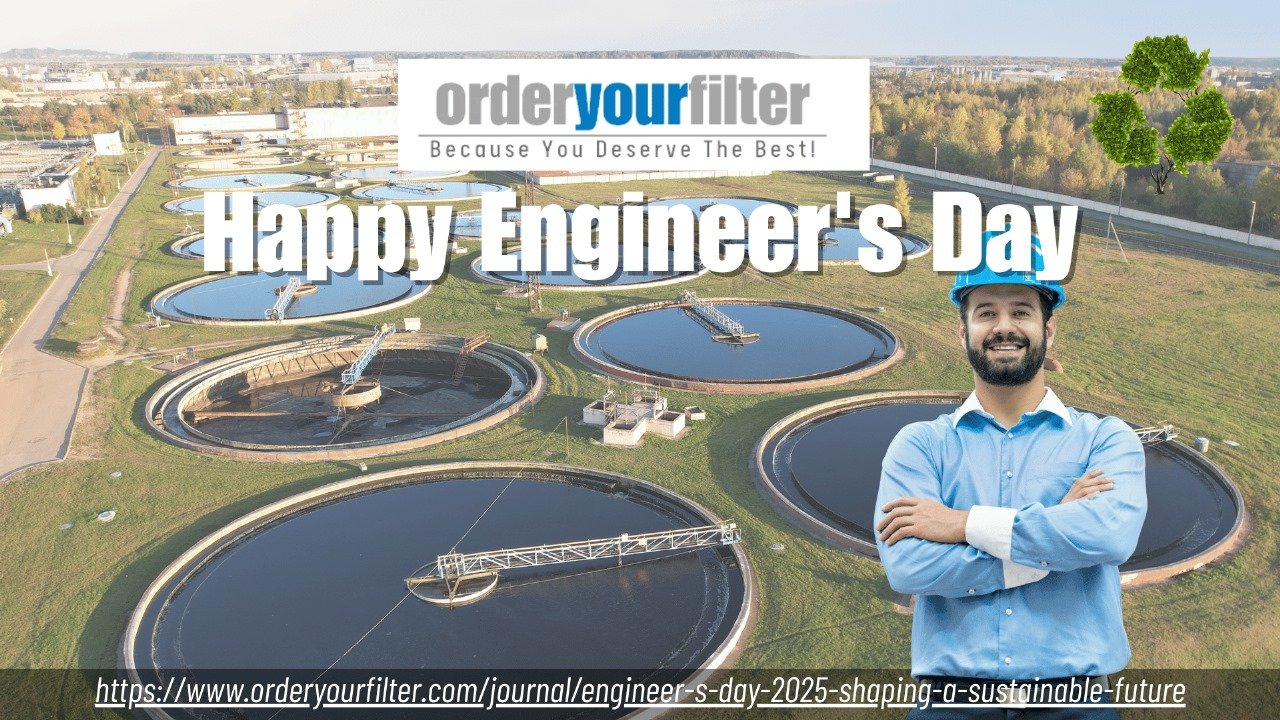Engineer’s Day 2025: Shaping a Sustainable Future Through Water and Wastewater Innovation
OYF Team Sep 15, 2025 Environment & Sustainability 712

Every year on 15th September, India celebrates Engineer’s Day to honor the legendary Sir Mokshagundam Visvesvaraya, one of the greatest civil engineers and visionaries of modern India. Known for his pioneering work in irrigation and flood management, Sir Visvesvaraya laid the foundation for sustainable water infrastructure at a time when it was most needed.
As we mark Engineer’s Day 2025, it is important to reflect on how engineering continues to shape not just our built environment but also the most critical resource for life and development — water.
The Role of Engineers in Water Sustainability
While bridges, highways, and skyscrapers often symbolize engineering progress, the true measure of sustainable development lies in how we manage water and wastewater.
Today’s engineers play a vital role in:
- Designing advanced wastewater treatment plants that recycle water for agriculture, industry, and urban use.
- Developing decentralized treatment solutions for rural and semi-urban communities with limited infrastructure.
- Implementing low-energy purification technologies that reduce costs and environmental impact.
- Leveraging IoT and AI-driven monitoring systems for real-time water quality management and leak detection.
These innovations ensure that water — the foundation of all ecosystems and economies — is managed responsibly for future generations.
Why Water and Wastewater Engineering Matters in 2025
India and the world face unprecedented water stress, climate change, and urbanization challenges. According to global studies, by 2030, nearly half the world’s population will live under severe water scarcity. This makes the role of water and wastewater engineers more critical than ever.
- Public Health: Safe drinking water and proper sanitation prevent disease outbreaks.
- Economic Growth: Industries rely heavily on sustainable water supply and recycling systems.
- Environmental Protection: Effective wastewater management prevents river and groundwater contamination.
- Climate Resilience: Engineers design adaptive water infrastructure that withstands floods, droughts, and extreme weather.
In 2025, engineers are not just solving technical problems — they are defining the future of water security.
Learning from Sir M. Visvesvaraya’s Legacy
Sir Visvesvaraya believed in using innovation, discipline, and foresight to solve pressing challenges. His work on the Krishna Raja Sagara Dam and flood protection systems continues to inspire water engineers worldwide.
In today’s context, his vision translates into circular water management, where wastewater is not treated as waste but as a resource. From urban water reuse to industrial recycling, engineers carry forward his legacy by ensuring water sustainability remains central to national development.
A Call to Engineers on Engineer’s Day 2025
As professionals in water and wastewater treatment, we shoulder both a technical and ethical responsibility. Every pipeline laid, every treatment tank designed, and every drop of water recycled has a ripple effect on:
- Public health
- Environmental sustainability
- Socio-economic stability
On this Engineer’s Day, let us recommit ourselves to building solutions that safeguard water for all — because the true measure of engineering success is not just in what we build, but in what we preserve.
Conclusion
Engineer’s Day 2025 is more than a celebration of engineering achievements; it is a reminder of our ongoing mission to address one of humanity’s greatest challenges — water security. Engineers are not only the builders of infrastructure but also the custodians of sustainable water management.
As we honor the legacy of Sir M. Visvesvaraya, let us recognize the critical role of water and wastewater engineers in shaping a future where access to clean and safe water is a fundamental right, not a privilege.